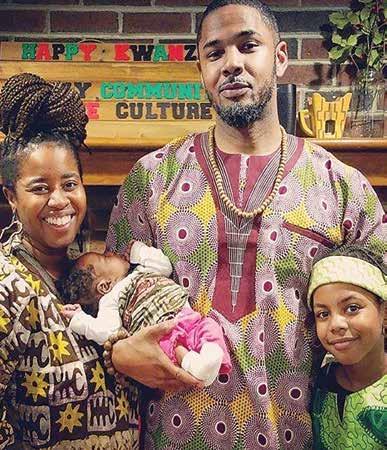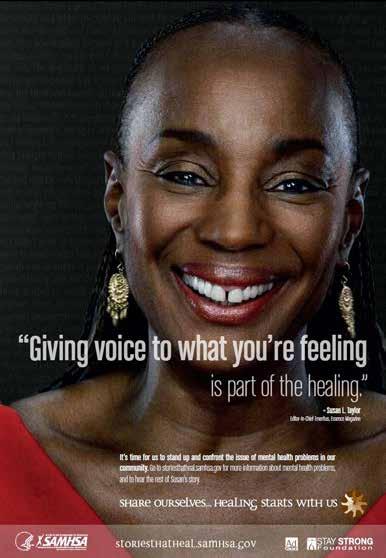
17 minute read
OpEd
EDITORIAL
Who Needs Access to the Middle Class? The First Priority is a Home
One of the foundations to the political platform which has long defined the Bowser Administration remains providing citizens with the skills, tools and knowledge needed to successfully embark upon and master the road to the middle class.
D.C. Mayor Muriel Bowser has employed ingenuity and creativity supplied by members of her own team as well as from leaders within the local business and education communities to help hundreds of citizens break the shackles of poverty. Many Washingtonians have benefited from the mayor’s commitment to securing pathways leading to greener pastures, greater financial opportunities and more equitable educational curriculum – answering their prayers in the achievement of their dreams.
However, with thousands of families and individuals impacted by reduced workhours, layoffs and record unemployment due to COVID-19, the focus by Bowser, and other city and state leaders, has understandably been protecting citizens from being evicted. In addition, Bowser has been true to her word, reducing the number of homeless families in the District by nearly 45 percent since 2016, according to a 2019 count required by the Department of Housing and Urban Development [HUD].
So, why aren’t we celebrating?
As a guest commentator for the Washington Post by Michelle Steer recently suggests, because of HUD’s “narrow and unrealistic definition of a homeless family,” a huge percentage of single-mother-led families, representing more than 80 percent of homeless families, are not being counted.
As Steer points out, HUD does not factor in those families who are sleeping on the couches, floors or in the garages of friends while they seek a home of their own. Neither does HUD include those in their definition of homeless who are paying for motel rooms with their own funds. As a nonsensical nuance, HUD does consider a family homeless if they’re paying for a motel room with a government-issued voucher.
We believe that the writer has shed light on an issue that continues to be hidden from view and ignored. Not only have many families failed to be counted among the homeless but children – the most vulnerable – have also failed to be counted and recognized.
Homeless children in the District, now hovering over 8,000 at the most recent count for the 2017-2018 school year, have become invisible and therefore unable to secure shelter or social services sorely needed for a modicum of acceptable education, nutrition and physical and emotional health and well-being.
It’s time we stop using rubrics and definitions for the Black community which we know fail to include all of our members – men, women and children. Further, if the government remains unwilling to be more realistic in tackling the issue of homelessness among people of color, we must provide our own means of getting them off of the streets and out of shelters or one-star motels and into a place in which children can feel safe – in places that families can call “home.”
It’s great to share a few coats or toys and turkey for those in need during the holidays.
But the greatest gift – one which would change lives forever – would be eradicating the scourge of homelessness which plagues our community. WI
C’mon Congress, What Took You So Long?
Finally, on Sunday, members of the U.S. Congress announced a $900 billion economic relief package greatly needed by millions of Americans impacted by the COVID-19 pandemic. Four days before Christmas, the House and Senate reached a compromise and forwarded the bill to President Trump for his signature. Months of intense negotiations between Democrats and Republicans juxtaposed the need to provide emergency support for millions of Americans that lost jobs and business owners forced to shut their doors, with divisions over how much they were willing to spend.
With the haranguing hopefully behind them, Congress’ COVID-19 Relief Package will provide individuals earning up to $75,000 a year a direct payment of $600 by New Year’s Eve, according to lawmakers. The jobless will receive $300 per week in unemployment benefits, along with an overall total of $25 billion in rental assistance for families facing evictions and an additional $13 billion for individuals receiving SNAP assistance. There will also be expanded eligibility for PPP loans to aid small businesses
W
I just wanted to say Merry Christmas and Happy New Year to the Washington Informer. I’m sure the year has been difficult in many ways due to the pandemic, but I’m glad to see you guys are still going strong. Keep going!
Bill Renner
Washington, D.C.
and non-profits and live venues, independent movie theaters and cultural institutions, and $10 billion to help childcare centers reopen safely.
The package will also help pay for the distribution of COVID-19 vaccines and make them available at no cost. Increased access to broadband internet will be provided, especially to families with students and unemployed workers impacted by the pandemic, and aid for education, transportation and an array of additional programs and services.
It will take a lot to get the economy back
TO THE EDITOR
W
I see attitudes are changing toward the COVID-19 vaccine from Black folks. We are still skeptical, but many of us see that it is a life or death situation. May all who need the vaccine get it.
Kenny Aimes
Washington, D.C.
on track and get Americans back to a sense of normalcy. How long the suffering will last is anyone’s guess. Not even Congress can agree on how much more it will cost to ease the pain. While many have criticized lawmakers for taking too long to come up with a bill that offers a little too late, this assistance is right on time for millions of Americans who desperately need it. Will more aid be coming? We hope so, and encourage the next Congress and President to assess the need and address it in a much less political and humanitarian manner. WI
OPINIONS/EDITORIALS
Guest Columnist
LaShonda Brenson
Black Voters Should See Themselves in Congressional Staff
As the new Congress prepares to take office and members of the U.S. House and Senate make key staff hires, it's time for careful scrutiny of the diversity reflected within the ranks of congressional staff. This is particularly true following an election in which Black voters were critical to its outcome.
More than 70 civil rights groups, including African American Mayors Association, Black Futures Lab,
The coronavirus has shined a light on how systematic racism, unequal access to opportunity, and disinvestments in low-income communities and communities of color have compounded inequities that have long existed in our country.
Black and Latino Americans, for example, are more likely to be hospitalized with and die of COVID-19,
I don't know about all of you, but it feels to me like Christmas came early this year.
Electing a new president and vice president was a gift that 81 million Americans gave to ourselves and to one another.
Every court rejection of Trump's bogus stolen election claims was one more stocking stuffer. Congressional Black Caucus Foundation (CBCF), and NAACP Legal Defense and Educational Fund, Inc. (LDF), have formally called on new members of Congress to increase the numbers of staff of color within the mid-level and senior ranks of congressional offices. Our advocacy is particularly important right now, in the period between Election Day and the formal start of the new Congress when most key staff are hired.
While we saw marginal improvement in senior staff diversity after the election in 2018, the lack of diversity are less likely to have access to quality healthcare, and are experiencing disproportionate and devastating economic instability as a result of the pandemic. Meanwhile, Black and Latino children are bearing the emotional impact of seeing their communities and families ravaged by the virus, and are more likely to encounter challenges with their education — which has largely moved online — due to a lack of access to highspeed internet and devices for learning. With a new presidential administra-
Here are some resolutions that leaders of the Biden administration should make right now to make 2021 a much happier new year than the one we have left behind: 1. Make it a priority to start fixing the federal courts by nominating fair-minded judges and justices who are committed to protecting civil and human rights. 2. Restore integrity to the 2020 census by reversing illegal efforts by the Trump administration to restrict who gets counted — and among senior congressional staff of both parties is long-standing.
The data is sobering, if not surprising.
People of color account for nearly 40 percent of the U.S. population. Yet, Joint Center research found that people of color account for just 11 percent of Washington, D.C.-based senior staff in Senate personal offices. These include positions like chief of staff, legislative director, and communications director — the most influential staff positions in Congress.
Unfortunately, our 2018 report also tion, we have an opportunity to begin on the path to a strong recovery from the pandemic.
But COVID-19 recovery cannot happen without education recovery. And true education recovery must focus on ensuring every child's civil right to quality teaching and learning in our nation's public schools. The federal government — specifically the Biden-Harris administration's Department of Education — can, and must, play a part in this work, by reinstating its role as a civil rights agency with a ro-
Ben Jealous
who counts when it comes to representation in Congress. 3. Revive the Department of Justice as the nation's primary protector of voting rights and civil rights and move aggressively against state and local efforts to restrict voting rights. 4. Do everything in our power to reunite the children and families separated by the immoral actions of the Trump administration. 5. Empower the Civil Rights Division at DOJ to investigate found that the House was only narrowly more representative with staffers of color comprising just 13.7 percent of senior roles.
And this inequity remains true for Republicans who represent large numbers of Black voters and for Democratic members who often depend on Black voters as a critical component of their electorate.
There's not a single Black senior staff member in the personal offices of the Republican senators who represent Mississippi and Louisiana, despite the fact that African Americans account bust racial justice agenda.
To be sure, if we want to “build back better,” decisive and bold federal action is required. Historically, there have been times when the Education Department has prioritized its civil rights role to ensure that students — regardless of their race, background, ethnicity, native language, disability, LGBTQ status, housing status, or country of origin — have the opportunity to access a quality public education. But that role was abandoned under the 45th president.
As the Biden-Harris administration abuses by state and local law enforcement, use consent decrees to get commitments for reform, and ensure accountability and more just policing through steady oversight. 6. Give stability to millions of immigrant families by fully resuming the Deferred Action for Childhood Arrivals program, reversing Trump's Muslim ban orders and policies, reopening the door to settling refugees, and eliminating the public charge rule that discriminates against poor for a third or more of the population in these states.
Similarly, though Black voters made up 37 percent of Democratic voters in Virginia in 2016, and 47 percent of Democratic voters in Maryland, there's not a single Black person holding a senior staff position within the offices of the Democratic senators who represent these states.
Meanwhile, the Congressional Black Caucus (CBC) is leading by example among congressional Dem-
Guest Columnist
John B. King Jr. and Marc H. Morial
Advocate for a Racial Justice Agenda at the U.S. Department of Education
BRENSON Page 45 prepares to assume office, we believe there are important ways that the Education Department can address the immediate impacts of the COVID-19 crisis, as well as our nation's ongoing fight against systemic racism and injustice.
First, the Secretary of Education must use his or her platform to lead a nationwide conversation about education through a racial equity lens.
What conversation must center on the needs of students from marginal-
Guest Columnist
New Year's Resolutions the Biden Administration Can Make Right Now
MORIAL Page 45
people. 7. Recognize that religious liberty is meant to be a shield to protect everyone's ability to exercise their religion, not a sword to allow religious claims to justify discrimination or other harms to others. 8. Reverse a Trump executive order that prevented federal agencies, contractors, and grantees from discussing the impact of racism in the workplace or em-
JEALOUS Page 45
Guest Columnist
Charlene Crowell
Biden Nominations Broaden Black Women's Leadership Roles
The selection of California Sen. Kamala Harris as Joe Biden's running mate and then her winning the nation's vice presidency gave unprecedented hope to Black women across the nation. Not only had a woman broken a glass ceiling in professional development, but she was also Black and a graduate of Howard University, one of the nation's premier historically Black institutions.
In recent days, however, two more significant nominations by President-elect Joe Biden signal that the presence of Black women in the new administration is expanding to other groundbreaking roles. If confirmed by the Senate, Cecilia Rouse, a renowned economist, will become the first Black woman to chair the nation's Council of Economic Advisers (CEA) and Ohio Rep. Marcia Fudge, a former chair of the Congressional Black Caucus, will become the second Black woman in 40 years to lead the Department of Housing and Urban Development (HUD).
Never before in the nation's history have three Black women simultaneously served in these three key posts. Moreover, as Black America seeks more fairness, inclusion, and equity with a new White House, these appointees are well-respected and ably qualified to serve in their respective roles.
Nominated on Nov. 30 to serve as CEA's chair, Cecilia Rouse is the current Dean of the Princeton School of Public and International Affairs (SPIA), and a former CEA member during the
Ray Curry Askia Muhammad
Obama administration. Earlier. she additionally served as a special assistant to President Bill Clinton on his National Economic Council.
As the Ivy League school's KatzmanErnst Professor in Economics and Education and public affairs, she is also the founding director of the Princeton Education Research Section, a member of the National Academy of Education, the Brookings Institution, and a member of the editorial board of the American Economic Journal, focusing on economic policy. dismissed a challenge by the Fraternal Order of Police (FOP) and Maureen Faulkner, the widow of Philadelphia Police Officer Daniel Faulkner who was killed on Dec. 9, 1981, ruling that the Philadelphia Court of Common Pleas must review several boxes of compelling new evidence of bribery and discrimination in jury selection discovered in the case.
There were boxes on top of boxes of suppressed evidence discovered that former District Attorney Ed Rendell and his allies suppressed for decades.
Rouse joined Princeton in 1992 after earning her undergraduate and doctorate degrees in economics from Harvard University and has led SPIA since 2012.
Princeton President Christopher L. Eisgruber offered his best wishes for her new role. "Ceci Rouse is a distinguished economist and an outstanding dean for the school," Eisgruber noted. "For more than eight years she has led the School of Public and International Affairs with
Guest Columnist
Biden Should Revive the U.S. Commission on Civil Rights
far does that go? To anyone who place. To reflect on a UAW that sisters and brothers stood strong, has suffered, who has been in need steps up when our brothers and stood courageous with only the or has seen their children go hun- sisters are suffering and in need. idea of what was right on their gry, how far does a helping hand We saw it in the early '30s when side. And we marched before the go? I would say it reaches all of us people were going hungry as this world.
What is the distance a good — it goes all the way to making nation suffered through the agony We saw it through the dynamic deed can travel? What does a warm the world a better place. of the Great Depression. We saw it '70s and well into the '80s when bowl of soup mean? What does a As we go into the holiday season in the late '30s and '40s, when sol- the UAW led the way in following warm bed mean? A new bike or a in the long and unimaginable year idarity was the only thing we had in our fallen leader Walter Rekind gesture from a stranger? that has been 2020, I would like to rely on as we stood up to the uther's footsteps, and soldiering
All these things are small in and to reflect a bit on the small kind- mega powerful auto bosses and de- on to build and solidify America's of themselves, but the smallest ges- nesses we can show one another manded — through blood, sweat middle class, while building prosture to someone in need can move and, when you add them up, how and tears — that they respect our perity and mobility and a better all the markers. If you are cold far we have traveled. This holiday workers and sit at the table to ne- way of life for so many. and someone offers you a warm season, I want to reflect on our gotiate the first contracts. When our courageous brothers sleeping bag, is there a measure for collective journey. On our union's We saw it in the '50s and '60s as and sisters stood together in 1990 that? If you are hungry, and some- long trek across time to make our communities were torn apart alongside Nelson Mandela, who one gives you a warm meal, how where we live a decent and better by racial inequality and my UAW spent 27 years of his life in pris-
Askia-At-Large
CROWELL Page 46
on fighting to end apartheid in South Africa. Upon his release, he came almost immediately to Detroit to thank our union members in person for taking a real role in his human rights struggle for justice and telling those assembled at Local 600, "Sisters and brothers, friends and comrades, the man who is speaking is not a stranger here. The man who is speaking is a member of the UAW. I am your flesh and blood."
And our values held fast as we stood by one another in a chang-
Mumia Abu Jamal: Closer to Freedom
ers who have maintained that he was of “Black World” newspaper publisher framed in the murder case by crooked the Rt. Honorable Marcus Mosiah cops, a crooked prosecutor, and tried Garvey, while the NABJ was convening by someone nicknamed the “hanging and partying in Philadelphia.
Mumia Abu Jamal, the Pennsylva- judge.” All this happened simply be- That execution date was stayed, as nia political prisoner who spent more cause he was an outspoken and effec- were all others, until the U.S. Supreme than 20 years on death row, and who tive opponent of police corruption in a Court ruled that his death penalty was remains on lockdown for a crime I do city at a time when such evil practices unjustly obtained, and rather than not believe, and which he and thou- were common. fight to execute him, the state dropped sands of his supporters all around the I even protested on these pages in its death penalty appeal, which might world insist he did not commit, moved 1995, the silence of the National As- have led to a possible new trial of his closer to exoneration and freedom re- sociation of Black Journalists (NABJ) unjust conviction itself. cently. when Mumia was scheduled for execu- Well, on Dec. 16, after two years of
I am one of the legions of support- tion on the anniversary of the birthdate litigation, the state’s Supreme Court
CURRY Page 45 They will now, finally be examined in open court. Evidence which could result in a finding of innocence.
“They were allegedly found in the back room behind a stairwell in a mid-level floor in the DA’s Office,” Dr. Johanna Fernandez, associate professor of history at Baruch College CUNY and an authority on Abu Jamal’s case told this writer.
“These boxes have potentially exculpatory evidence: a letter written by one
ASKIA Page 46








